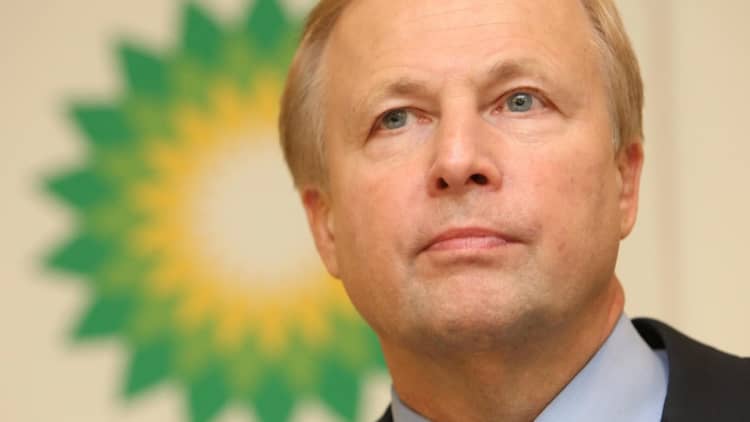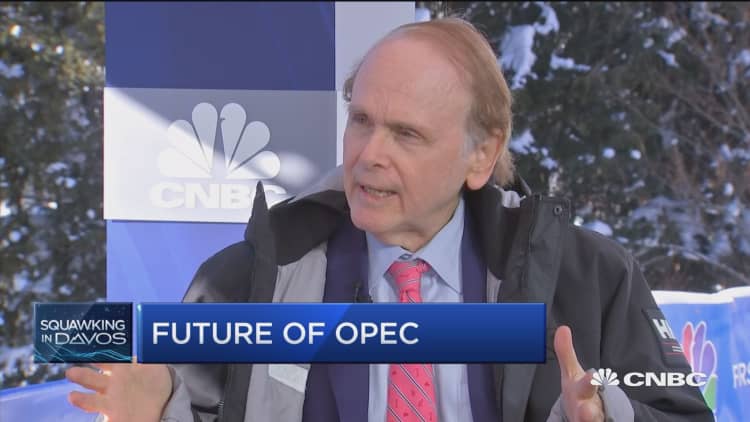The oil market fell on Wednesday as a widespread economic slowdown, which may dent growth in demand for fuel, weighed on energy prices.
Crude futures earlier got a boost from hopes that Japan and China would take fiscal stimulus measures to stem the slowdown. Prices got further support from expectations that U.S. crude stockpiles fell last week and official data indicated slowing growth in U.S. shale oil output in the coming years.
But by midday benchmark futures were on pace for a second straight day of losses.
International Brent crude oil futures fell 35 cents, or about half a percent, to $61.15 per barrel around 2:30 p.m. ET. U.S. West Texas Intermediate crude futures ended Wednesday's session down 39 cents, or about 0.75 percent, at $52.62 per barrel.

Oil prices fell by 2 percent on Tuesday as financial markets reeled from concerns about a global economic slowdown and the heavy losses spooked investors into safe-haven assets such as government bonds or gold.
A litany of poor economic data worldwide sapped Asian markets, though some optimism emerged as China and Japan said they would use fiscal spending to boost growth.
Analysts said falling U.S. gasoline prices and rising crude output in the United States was also pressuring the crude market.
"We are paying particular attention to weakening NYMEX crack spreads where an increasingly heavy gasoline market is providing a limiter on near term WTI gains," Jim Ritterbusch, president of Ritterbusch and Associates in Chicago, said in a report.
The crack spread between U.S. gasoline futures and WTI crude on the New York Mercantile Exchange fell to $6.11 a barrel, its lowest since 2013.
Market participants said they are looking ahead to the U.S. weekly petroleum inventories report, which is expected to show a third weekly drawdown in crude stocks, but gasoline inventories were forecast to build for the eighth straight week.
The weekly report from the American Petroleum Institute (API), an industry group, is expected after the market settles on Wednesday, a day later than usual due to the U.S. Martin Luther King Jr holiday on Monday. Data from the U.S. Energy Information Administration will be released on Thursday.

The EIA said on Tuesday it expected shale output to rise to a record high in February. In the longer term, EIA said that production growth would slow in the coming years.
"Rising oil output from the United States, together with the effects of the U.S.-China trade war and growing prospects of the United States hitting its debt ceiling" were weighing on crude prices, said Abhishek Kumar, senior energy analyst at Interfax Energy in London.
Those bearish market factors offset several bullish influences from around the world, including production cuts led by the Organization of the Petroleum Exporting Countries and declining output from Iran and Venezuela.
Venezuelan opposition leader Juan Guaido declared himself interim president on Wednesday, while hundreds of thousands of Venezuelans poured onto the streets to demand an end to the socialist government of President Nicolas Maduro.
The Trump administration said the United States could impose new sanctions on Venezuela's oil sector as soon as this week if the political situation there deteriorates further.

